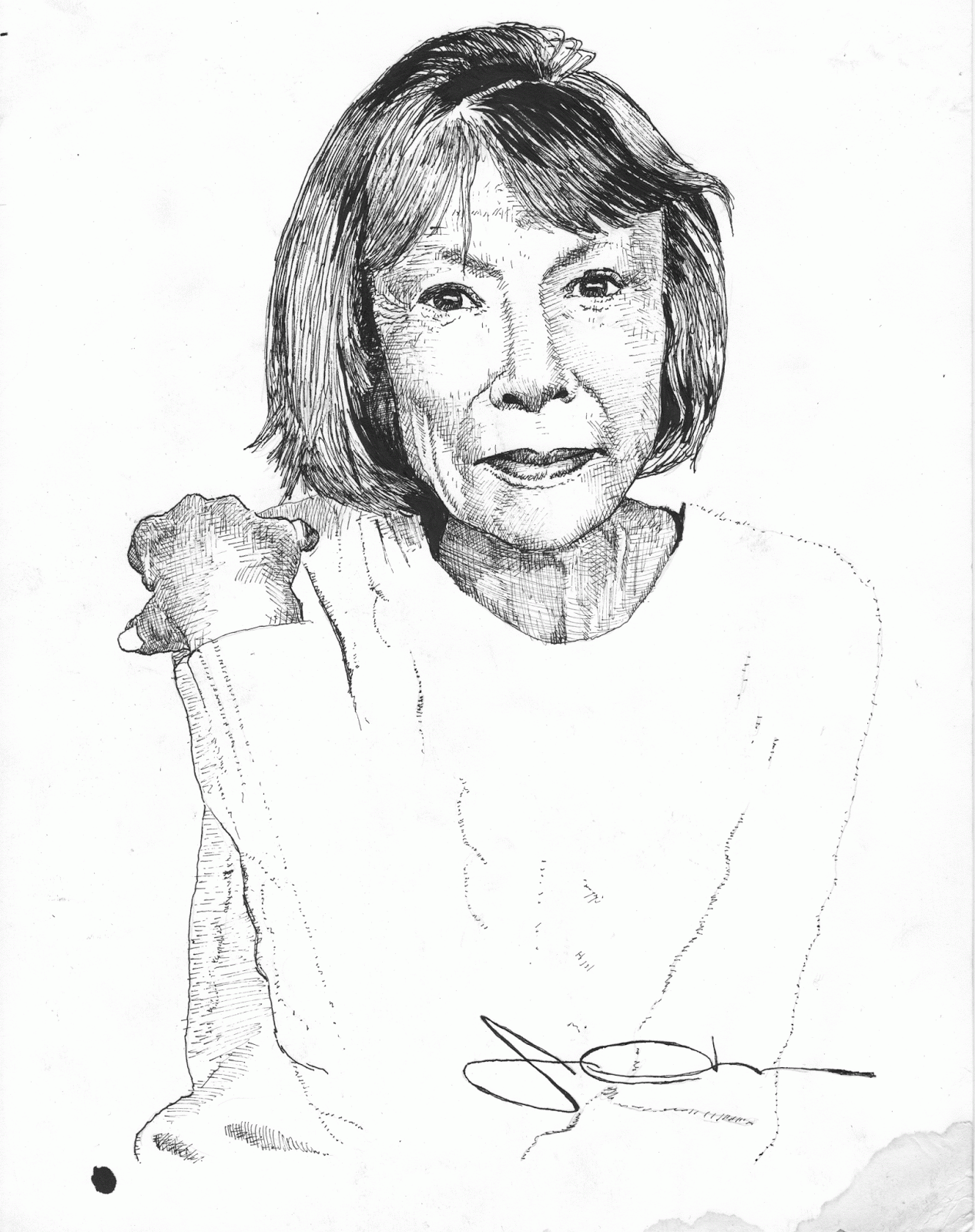“Once, in a dry season, I wrote in large letters across two pages of a notebook that innocence ends when one is stripped of the delusion that one likes oneself” – So begins Joan Didion’s essay, titled On Self-Respect. It is a Tuesday night, and it is Christmas Eve. The family is asleep and the wine has been drunk. I am reading her writing but I can’t escape the fact that her words are forcing me to make peace with the fact that my writing will probably never be good enough to measure up to hers.
I’ve become too lazy these days and am choosing not to practice a skill that could probably be improved over time, if only I made the attempt to do so.
In 1961, the essay was first published in Vogue magazine at a time when self-respect didn’t involve a daily expensive skincare routine and a cramped thumb from hours spent scrolling through social media. I’d like to imagine that self-respect in the 60’s involved women choosing themselves over men more often than not, by choosing a kind of happiness that only they were privy to.
In 2020, respecting oneself has turned into a choice that many of us seem to not to make. We pride ourselves on our capabilities when reading between the lines of a text message or an Instagram caption, or the quickest way to get rid of an invisible blemish, but find ourselves unable to make peace with the difficulties of a kind of respect that only we can award ourselves before anyone else does.
Throughout the course of the essay, she invites us to have dinner with a mild existential crisis. Didion gives us the impression that self-respect is always just within reach, an apple that can be plucked from the lowest branch of confidence if only one jumps high enough to pick it off with ease.
Upon reaching this odd truth, I have come to the realisation that I am constantly choosing unfitness or uncomfortable shoes. Preparing the body to make that jump is often easier said than done, and after a certain point in time, the apple has rotted and fallen on its own.
As the essay draws to a close, Didion writes about the alienation of the self. She gives readers the permission to decide rather than choose whether or not they want to assign themselves respect, and free themselves of expectation from everyone else. In giving us the chance “to give us back to ourselves”, she smacks us across the face with an answer that had been glaring at us throughout the entirety of the essay: self-respect is not a gift or an object that can be bought or given to us by anybody else, but a routine that must be practiced in order for it to become something that we end up giving and gifting ourselves.
Will my writing ever measure up to the standard that I hold it to? Will I ever choose to respect my own work and myself? Will I allow the two to be mutually exclusive and not feel bad about it? The answer lies in whether or not I will practise the two, and make them both feel natural.

How does Didion write with such frank earnestness? She answers this question in Why I Write, and says “I write entirely to find out what I’m thinking, what I’m looking at, what I see and what it means”
When I read those words for the first time, I imagine that Didion is standing in the corner of my bedroom and laughing at me because of how seriously I am taking her words. Just like her, I too have bought several temporary visas and attempted to journey into a world of thinking smart thoughts about writing and different ideas, but as I reach the middle of the essay, I realise that my writing is not always as deep as I would like it to be.
Writing is not always about thinking important thoughts and hurriedly jotting them down into a notebook to recall and impress someone later, but is sometimes a process that we take part in simply because it’s necessary, and not to just achieve something bigger than us. We write to solve theories that we create, to ignore endless to-do lists, to attempt self-respect and clear out roomfuls of clutter in our heads.
Didion makes the crisis seem as though it is cool and collected in Why I Write. As readers, we are no longer having dinner with a jumble of unanswered questions, but we are walking around a new city with them instead, and the conversation takes place through various forms of written media. We are conversing about cat videos and coffee shops; the unanswered questions slowly respond by themselves through her essay.
The important thoughts that we once beat ourselves up about are no longer as pressing. We write because we don’t have answers. I’d like to imagine that at some point, I’ve begun to try and practise self-respect, and I
no longer beat myself up about my writing. This idealistic notion of what writing is seems almost redundant after reading her essay On Keeping a Notebook.
Didion writes “it all comes back”, and I am scared of that sentence. Why does she want to remember? Why do I feel guilty because I don’t remember? Why does she remember information that isn’t relevant anymore? In many ways, Didion was relatable before relatability was popularised by an internet market that thrives on the low self esteem of the youth that consume it.
When reading certain essays in Slouching Towards Bethlehem, I find myself thinking “yes, exactly” far too many times to count. I want to run to her, and tell her that she has written down thoughts that I am too embarrassed to share, but I know that she’ll be wearing sunglasses and I will be forced to stare at my reflection in them.

It all comes back. Does it always have to?
Is this how she is able to document her relationship with New York?
Did Didion even go around New York City with a notebook and a pen and write about how the city made her who she is? There is something about that image that feels off in my head; she seems too aloof and separate from something as basic as writing about her feelings, until I read Goodbye to all that.
I become nostalgic for a place that has never existed outside of film for me.
Places always belong to women. New York is Didion’s and Molly Crabapple’s, Bombay is Meera Ganpathi’s, Nigeria is Adichie’s. Places belong to women through their writing, their self-respect and the practise of choosing to survive in spaces that often want to reject their desire to make room for themselves.
My existential crisis will probably always be an ongoing one. My notebooks are always half empty and the pens are uncapped. I only hope that when wearing a pair of sunglasses¸ I am able to look as ironically cool as Didion does.
Amelia David
Latest posts by Amelia David (see all)
- “It all comes back”: On Reading Joan Didion - 7th July 2020
- Udupi Is Only a Five-Minute Walk from College - 16th August 2019
- #101 - 26th May 2019






poincare 15th November 2021
Great work! Ƭhat iѕ the kind of information that ѕһoսld be shared across
the internet. Disgrace on the seek engines for not positioning this put up higher!
Come on over and seek advice from mү website . Thanks =)